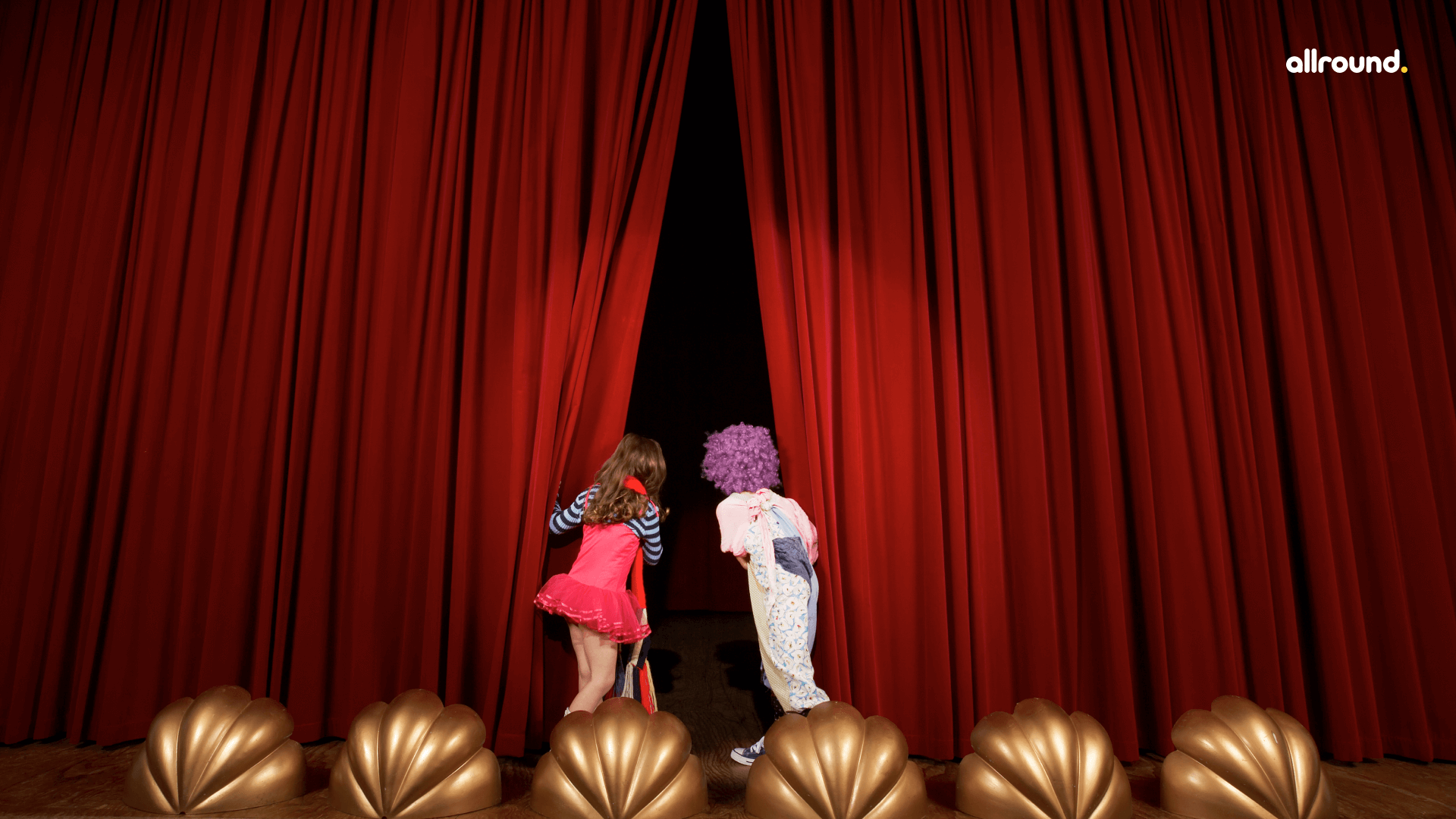Stage Fright: How to Help Kids with Performance Anxiety?7 min read
Is your child afraid of public speaking? Does he dislike performing an instrument in public, even if it’s just in front of family? Stage fright is a widespread feeling of anxiousness when one has to speak or perform in front of a group of people. It is a common occurrence in many people, whether they are children or adults. While some people overcome their stage fright with time and practice, it is not so easy for others. It is entirely normal to feel anxious when you have to perform in front of an audience because that’s when all eyes are on you. Let us understand stage fright in some more detail.
Contents
What is Stage Fright?
As we mentioned above, stage fright or performance anxiety is a kind of fear or the feeling of anxiety and stress that a person goes through when they have to speak and perform in front of an audience. Although not every child goes through it, stage fright is something that many children face. They could feel nervousness, anxiety, and fear when they have to perform in front of a crowd, even if it’s a small one. Stage fright in kids can result in several physical symptoms like tummy aches, headaches, sweating, vomiting, diarrhea, etc. It can even make them cry and throw tantrums.
Even though having stage fright is pretty standard for kids, it occurs for several reasons.
What are the Causes of Stage Fright in Children?
Stage fright in children could be caused due to several reasons. A few of these can include:
Low Self-Esteem and Lack of Confidence
Children can have stage fright either because of a lack of confidence or low self-esteem. If your child isn’t yet fully aware of his capabilities and potential, he may feel like he is not good enough to perform in front of an audience. Low confidence levels can affect how a child thinks about himself and his abilities which in turn causes stress and anxiety.
Fear of Judgement and Embarrassment
Many children tend to feel afraid of what people in the audience (friends, relatives, teachers, strangers) might think. Children can also feel like they’re being judged and that if they make a mistake, the audience might laugh or make fun of them. Nobody likes being embarrassed in front of a crowd, and children hate the thought of being ridiculed, especially in public.
High Expectations
Every child wants to feel appreciated and maybe even get a massive round of applause after performing. A child might feel like her parents and teachers expect an excellent performance from her. Or perhaps she has very high expectations for herself. When children think that they need to perform exceptionally well, either for an audience or themselves, they begin to set unattainable goals that they can find hard to reach.
Past Failures
Maybe your child hasn’t had great experiences with performing in the past. Perhaps he forgot a line or played the wrong notes; it could be anything. But no matter how small the mistake was, it was probably a much bigger deal for your child. This can be another cause of stage fright in the future.
Poor Preparation
Children will feel stressed and highly nervous if they are underprepared. Adequate preparation is essential to have a good performance and helps the person feel more confident. If your child isn’t well-prepared, there is a greater possibility of her having stage fright.
How Can You Help Your Child Deal with Stage Fright?
Although children can overcome their fears over some time, it is not uncommon for many to still find it challenging to cope with the pressures of performing. Don’t be alarmed if you’ve noticed that your child struggles with stage fright. Here are a few things you can do to help your child healthily deal with their stage fright:
Listen to their fears and worries
Sometimes parents believe that telling their kids to “get over” their nerves or saying things like they’ll be “just fine” might help, but trust us when we say that is the least helpful idea in the book! Repressing feelings of doubt and anxiety will not solve your child’s problem. Instead, sit them down and hear them out. Listen to what seems to be troubling them and allow them to open up about their worries and fears. As you actively listen to your child, you will understand where his suspicions are coming from.
Practice with them
Since one of the many causes of stage fright includes lack of preparation, make sure that your child is well-prepared before their big day. Practice with your child and help them in areas where they struggle. You could also ask them to perform in front of their favorite toys. Although this may seem silly, kids tend to have an attachment to their toys and sometimes even give them names and personalities. As your child practices in front of her toys, she will feel more comfortable when her actual performance comes along. The bottom line is that practice makes perfect, and you want your child to have all the training she needs!
Explain that no one is perfect
Children have a massive fear of being embarrassed in public. They are afraid that if they mess up, everyone in the audience will see it and ridicule them. Please remind your child that no one is perfect, and we all make mistakes. Telling them that everyone in the audience is human and has messed up at some point in their lives will help calm their fears. You could also narrate a personal experience where you or someone you knew made some silly mistakes in public. Assuring your child that making mistakes is not the end of the world is essential so that they don’t beat themselves up for it if it does happen.
Reassure them that their worth is not attached to their achievements
If your child is setting exceptionally high standards for herself, remind her that it’s okay not to have the perfect performance. Teach your child that there will always be ups and downs and that her worth as a human being is not attached to her successes or failures. When your child understands that achievements are just small parts of life, she will not worry so much about messing up. Reassure her that you will continue to love and support her no matter what happens on stage.
Give them some helpful pointers
Sometimes your child may need a few practical tips to help him get through a performance. Teaching your child to ground himself before a performance will help. Ask him to calm down and take deep breaths. Suggest focusing on the back of the room or the wall in front instead of the audience. Children tend to get even more nervous when they look at the audience, so telling your child not to do that might help. You can also teach your child about pacing to avoid rushing through performance because of anxiety. Another tip that could help your child is telling him to laugh it off.
Tell them to believe in themselves and their abilities
Teach your child to practice positive self-talk. Explain to her that feeding negative thoughts into her mind will not benefit her at all. Instead, please help your child to understand that she is capable of doing certain things and that it is not impossible to perform. Please help your child identify any negative talk and turn it into positive statements. Please remind your child that she is impressive and can pull off an excellent performance.
Please encourage them to turn their anxiety into excitement
Anxiety and excitement may be opposing feelings, but they have similar symptoms. Both can get a person’s heart racing and make someone think about something. Research shows that excitement is an effective way to reduce anxiety. So, please encourage your child to embrace his anxiety and channel the excitement within him.
Conclusion
We hope these tips come in handy as you help your child cope with stage fright. Remember to be their biggest cheerleader no matter what and patiently support them through the process of performing. Be positive and have faith that your child will do the best if he has you rooting for him on the side.





